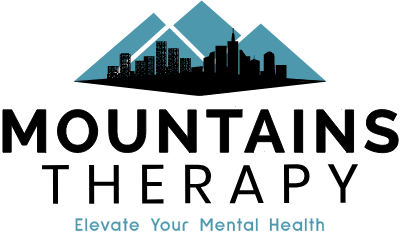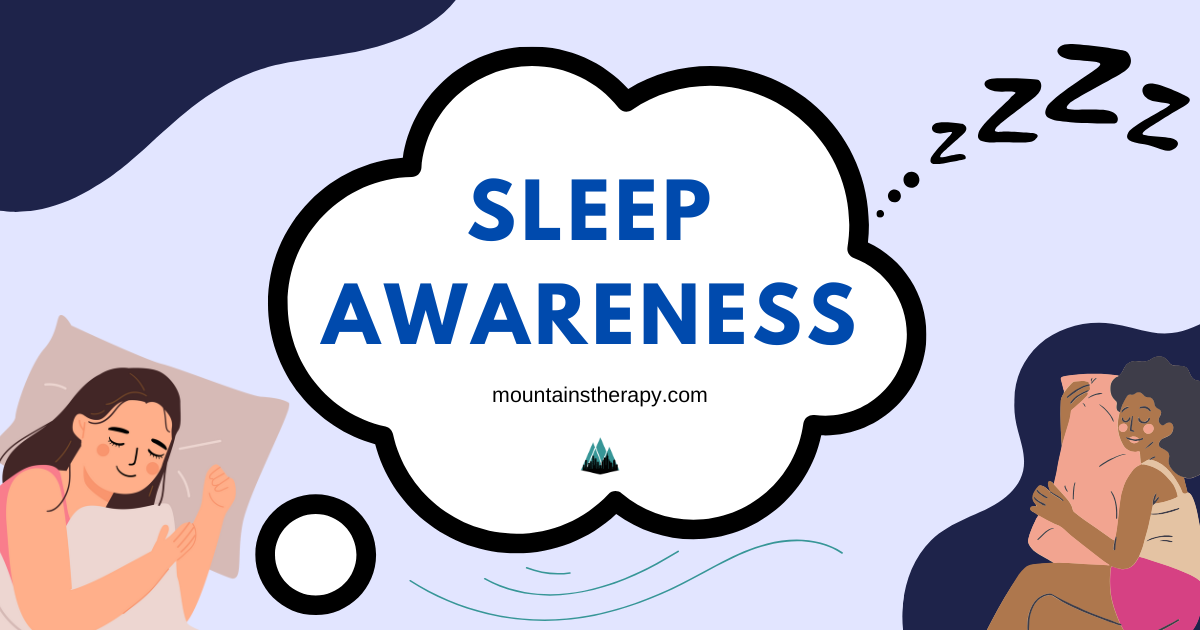Sleep Awareness Month: How Therapy Can Help You Rest Better
Learn more about Individual Therapy.
In This Blog, You’ll Learn:
✅ How sleep affects your overall well-being
✅ The connection between sleep and mental health
✅ Ways therapy can help improve sleep
✅ How much sleep is recommended
✅ Warning signs of sleep deprivation
🧠The Importance of Sleep for Mental Health
We all know that why sleep is important is a no-brainer, but many of us don’t realize just how much it impacts our mental well-being. Sleep isn't just about feeling rested; it plays a crucial role in many aspect of our lives. We all know that why sleep is important is a no-brainer, but many of us don’t realize just how much it impacts our mental well-being. Sleep isn't just about feeling rested; it plays a crucial role in our mental health, physical health, academic performance and work performance.
Mental Health Impact
Sleep plays a crucial role in maintaining emotional and psychological well-being. Research has shown that how sleep affects mental health is significant, poor sleep is linked to increased stress, anxiety, and even suicidal thoughts. Without enough rest, our ability to manage emotions and cope with daily stressors is significantly impaired.
Here’s how sleep supports mental health:
- Regulates emotions: Sleep helps the brain process and regulate emotions, reducing irritability and mood swings.
- Processes daily experiences: During deep sleep, the brain consolidates memories and processes emotions from the day, helping you learn and grow emotionally.
- Keeps anxiety and depression in check: Chronic sleep deprivation has been linked to an increased risk of anxiety disorders and depression, making quality sleep a key part of mental health care.
Health Impact
The effects of poor sleep go beyond just feeling groggy. How sleep affects your health includes:
- Weakened immune function: Sleep deprivation makes it harder for the body to fight off infections, increasing the likelihood of getting sick.
- Increased risk of heart disease: Chronic sleep deprivation is linked to high blood pressure, heart attacks, and other cardiovascular issues.
- Impact on weight management: Lack of sleep disrupts hormones that regulate hunger and metabolism, leading to increased cravings and potential weight gain.
- Higher risk of diabetes: Poor sleep affects insulin sensitivity, increasing the risk of type 2 diabetes.
- Greater susceptibility to chronic pain: Inadequate sleep can exacerbate pain conditions and slow down recovery from injuries.
Academic Performance Impact
How sleep affects academic performance is a serious concern for students:
- Lack of sleep reduces concentration, making it harder to absorb and retain information.
- Poor memory retention affects grades, leading to struggles with exams and assignments.
- Chronic sleep deprivation can increase stress levels, making school even more overwhelming.
Work Performance Impact
For professionals, sleep deprivation can be just as damaging:
- Lower productivity and efficiency at work
- Increased mistakes and slower reaction times
- Higher risk of burnout and job dissatisfaction
- Struggles with decision-making and problem-solving
💤 The Science of Sleep
Understanding
how sleep works can help us make better choices when it comes to improving our sleep habits.
Sleep is divided into different stages, each with its own role in brain function and recovery:
- What sleep stage do you dream in? REM sleep
- Which sleep stage is most important? Deep sleep (slow-wave sleep) for restoration and memory
Sleep disruptions can occur at different life stages:
- When sleep regression happens varies, but the 4-month regression is particularly challenging.
- Which sleep regression is the worst? The 18-month and 2-year regressions can be especially difficult.
If you're dealing with chronic sleep disturbances, a sleep disorder could be the cause:
- Which sleep disorder is an example of a dyssomnia? Insomnia and sleep apnea fall into this category.
- Will sleep apnea go away? Sometimes, lifestyle changes help, but medical intervention is often needed.
⏰ How Much Sleep Do You Really Need?
Many people underestimate the amount of sleep they need to function optimally. According to the who sleep recommendations, here’s how much sleep is ideal for different age groups:
- Newborns (0-3 months): 14-17 hours per day
- Infants (4-12 months): 12-16 hours (including naps)
- Toddlers (1-2 years): 11-14 hours
- Preschoolers (3-5 years): 10-13 hours
- School-age children (6-12 years): 9-12 hours
- Teens (13-18 years): 8-10 hours
- Adults (18-64 years): 7-9 hours
- Older adults (65+ years): 7-8 hours
Unfortunately, many adults and teens fall short of these recommendations, leading to sleep deprivation and its negative effects.
⚠️ Warning Signs of Sleep Deprivation
Not sure if you're getting enough sleep? If you're experiencing several of these symptoms, it may be time to prioritize your sleep or seek professional help.
Here are some signs that you might be sleep-deprived:
- Constant fatigue even after a full night’s sleep
- Difficulty concentrating or remembering things
- Mood swings, irritability, or increased anxiety
- Increased cravings for caffeine or sugar
- Falling asleep quickly as soon as you sit down or relax
- Struggling to stay awake while driving or in quiet settings
- Weakened immune system, leading to frequent colds or infections
- Impaired decision-making and slower reaction times
🛌 How Therapy Can Help You Sleep Better
Therapy can help break the cycle by addressing anxious thoughts and behaviors that interfere with rest.
- Techniques such as:
- Relaxation exercises
- Mindfulness
- Cognitive behavioral therapy for sleeplessness (CBT-I)
- If you struggle with sleep, you may be wondering:
- How can I fall asleep with anxiety?
- How do you sleep with anxiety?
Cognitive Behavioral Therapy for Sleep
- Cognitive behavioral therapy for sleeplessness (CBT-I) is a structured, evidence-based approach that helps individuals develop healthier sleep habits. Learn more about CBT for sleep.
- CBT Therapy focuses on:
- Identifying negative thought patterns about sleep
- Establishing a consistent sleep routine
- Reducing nighttime anxiety and stress
- Improving sleep efficiency through behavioral changes
Mindfulness Therapy for Sleep
- Mindfulness therapy can also be highly effective in promoting better sleep. Learn more about mindfulness for sleep.
- Mindfulness based therapy for sleep approach involves:
- Practicing deep breathing and meditation techniques
- Engaging in progressive muscle relaxation
- Cultivating awareness of thoughts without judgment
- Letting go of intrusive worries that interfere with rest
🏥 Are Sleep Studies Covered by Insurance?
If you suspect a sleep disorder and need medical testing, you might be asking, are sleep studies covered by insurance? Many insurance providers cover sleep studies when medically necessary. It’s worth checking with your provider to explore testing and treatment options.
🌟 Take the First Step Toward Better Sleep
If poor sleep is taking a toll on your mental health, you’re not alone. At Mountains Therapy in Montclair, NJ, we help individuals navigate sleep challenges through evidence-based therapy. Whether you’re dealing with insomnia, anxiety, or stress-related sleep disturbances, we’re here to support you. Ready to take control of your sleep and mental health? Contact us today to schedule an appointment and start your journey toward better rest and well-being.














